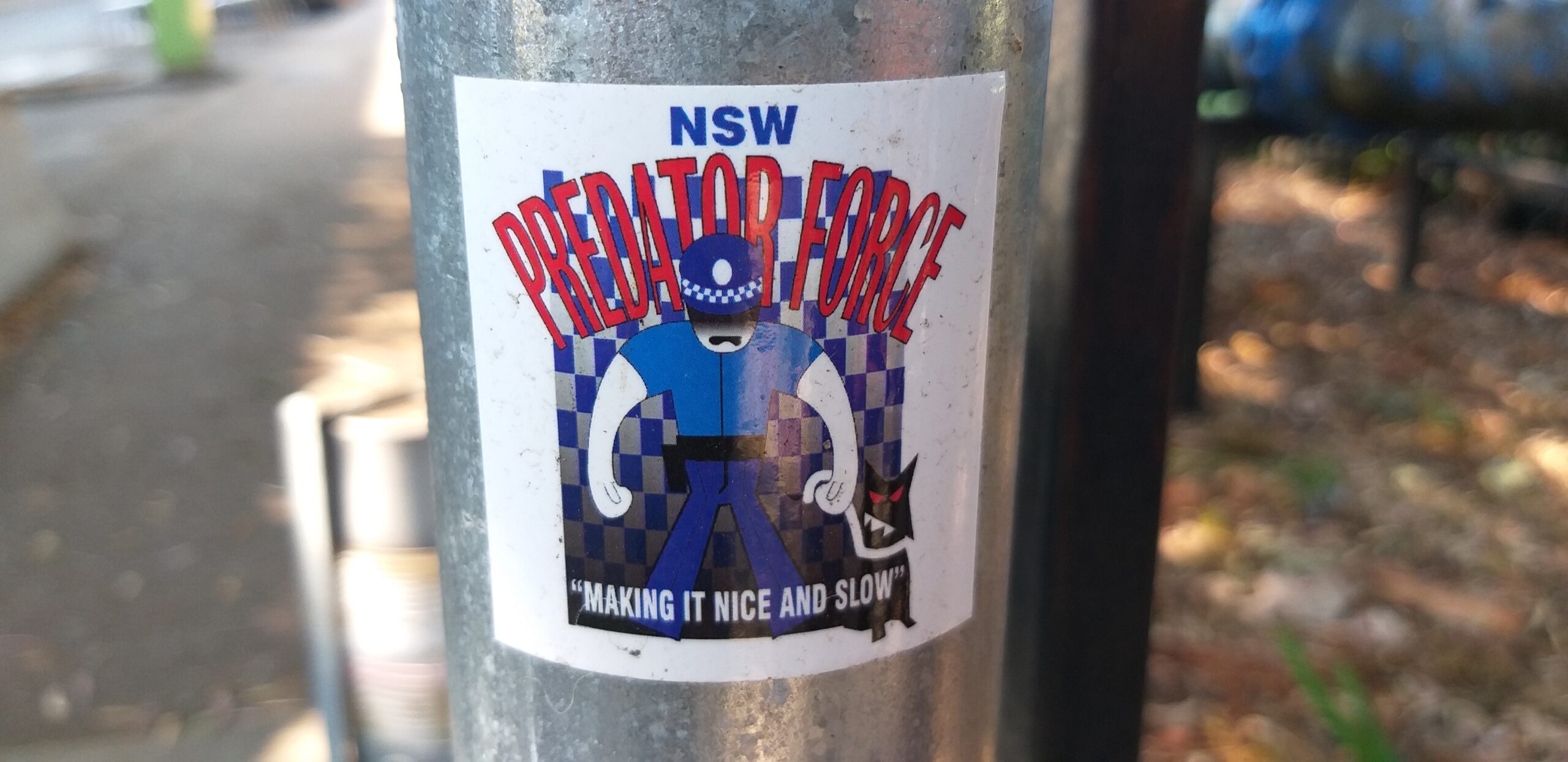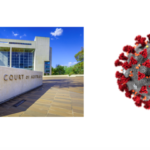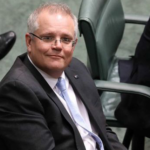NSW Government Wants “Retrograde” HIV Testing Laws: An Interview With ACON’s Brent Mackie

The Berejiklian government recently introduced a bill that requires people to undergo mandatory blood testing to see if they have a blood-borne disease – specifically HIV, hepatitis B and hepatitis C – if they deliberately expose a health, emergency or public sector worker to their bodily fluids.
The most obvious way a frontline worker would be deliberately exposed to a person’s bodily fluids is via spitting. And while these laws would apply to saliva, it’s not possible to contract these diseases – including HIV – in this manner.
On top of this, as ACON has pointed out, “There has been zero occupational transmissions of HIV in Australia for 17 years, and never an occupational transmission for a police officer.”
Indeed, NSW Independent MP for Sydney Alex Greenwich made clear during parliamentary debate on the legislation that the proposed laws are “a result of a fearmongering campaign by the Police Association of NSW”.
So, it appears the Coalition is looking to enact legislation that has no scientific basis, but rather contains yet another set of laws to placate NSW police.
What the police want
In the early days of the current pandemic, there were concerns around people threatening to cough or spit on frontline workers with the implied threat of COVID-19 exposure.
So, at first glance, one would expect the Mandatory Disease Testing Bill 2020 was in response to the coronavirus, but that’s not the case.
These laws have been contemplated since late 2017. A 2018 NSW Justice report on mandatory disease testing confirms that it was the NSW Police Association pushing for a mandatory disease testing regime to provide “peace of mind” to law enforcement officers.
The report further outlines that similar regimes have been rolled out in Western Australia, South Australia, Queensland and Victoria. And as in some of those jurisdictions, an individual in NSW failing to undertake a required test could be penalised with a prison sentence or a steep fine.
So, the questions being raised as to why NSW police minister David Elliott is proposing this legislation are quite rational, while the laws themselves aren’t, especially when you consider that during the height of the HIV crisis in the 1980s, no such laws were enacted or even proposed.
“A form of punishment”
Greenwich further told parliament that “as a gay man” he comes from a community that has been bashed, body-slammed and “whose safety was negligently ignored” for decades by police, and he’s “deeply concerned” about these laws being weaponised “as a form of punishment” by .
A sustained campaign against these laws has been led by community groups, such as ACON, NUUA and Hepatitis NSW. While a push against the laws from politicians, including Greenwich, Greens MP Jenny Leong and Labor MP Jo Haylen, has led to the legislation being sent to a parliamentary inquiry.
Sydney Criminal Lawyers spoke to ACON associate director of policy, strategy and research Brent Mackie about why the government is contemplating redundant legislation, the likely stigma and discrimination the laws would cause, and how HIV isn’t the issue it was back in the 1980s.

Firstly, the Mandatory Disease Testing Bill seeks to establish a regime whereby people who deliberately expose frontline workers to their bodily fluids can be ordered to undertake a blood test to see if they have any blood-borne diseases.
The most obvious way a person would deliberately expose frontline workers to their bodily fluids is by spitting. These laws would apply to saliva. However, these diseases can’t be spread via saliva.
Brent, why in 2020 is our government contemplating the enactment of laws that don’t make any sense?
It’s largely being driven by pressure from the Police Association. Similar legislation has been enacted in a couple of other states, in Western Australia and South Australia. This has again been at the advocacy of the Police Association.
But it flies in the face of scientific evidence. You can’t transmit HIV via spitting. There is no evidence of that at all.
There have been no infections of a police officer through any bodily fluids in NSW.
The reasons why the government wants to enact it is all about appeasing the lobby group – the Police Association – rather than responding to any scientific need.
It’s much more important if medical assistance and help is provided to those people who are exposed to body fluids.
So, if there might be a risk of transmission – say there’s some blood – then they could immediately be put on post-exposure prophylaxis for HIV, as well as given proper care, support and advice.
This legislation is not that path.
But looking past the spitting scenario, there are further reasons why this legislation doesn’t stack up. What are some of the other concerns ACON has about these laws?
One of the big things for us is that it could undermine a lot of the work that’s been done around the HIV strategy.
We’ve had an excellent response to HIV in NSW and around Australia. And for many years, this has been based on urging people to get tested.
But this bill stigmatises people with HIV. It puts them in a position where they become criminalised.
So, this could undermine that entire response, which is a big issue for us.
Other than it being scientifically invalid, these laws could be used in quite punitive ways by law enforcement officers to discriminate against a range of people who don’t have the resources to respond effectively to being accused of this sort of thing.
This could be homeless people, people with mental health conditions and Aboriginal and Torres Strait Islander people.
While these people are not in a group at risk of HIV, they could all be subjected to these orders, as a means by which they are penalised and have their rights removed.
We have seen that happen in other states. Certainly, this has been the case in Western Australia. We have seen a lot more orders for mandatory testing in rural settings and towns where there are a lot of Aboriginal people.
So, it’s being used for other purposes by police than what it was originally intended for.
I understand that it’s the frontline worker who has come into contact with the bodily fluids who actually makes the decision as to whether the testing is carried out.
Under the proposed legislation in NSW, the worker would make a request for it to happen. It would then be assessed by a senior officer in each of the agencies.
In the police, it would be at the inspector level. In other agencies it would depend on the level determined.
The senior officer would make the determination. The person would have around a week to make an appeal against that decision, and that could go to the chief health officer.
If you add that up, it could take around 5 days to go through. But if the worker was truly exposed to HIV, the point would be to get them on to preventative medication: post-exposure prophylaxis (PEP). And you have a 72 hour window period to get people onto that.
So, you want to do that as quickly as possible. And PEP has been proven to be totally effective in preventing HIV. That would be the most scientifically responsible response you could take.
So, you can take PEP after being exposed?

Yes. You can take it straight afterwards, or within 72 hours of the exposure incident. That would prevent the transmission of HIV.
There were reports in the media earlier this year about people spitting on frontline workers during the COVID crisis.
So, at first approach this bill might seem like a response to the pandemic, but on reading it, it has nothing to do with COVID. What is the impetus for these laws being proposed now?
The legislation doesn’t mention COVID. These laws certainly weren’t seen as necessary at the height of the AIDS epidemic back in the 1980s and early 1990s.
It was never put forward as a proposal then. And it seems very strange that it would be necessary today.
So, it seems that it’s a political move to appease groups like the Police Association.
So, the Police Association is the main motivation for these laws?
Yes. They lobbied for this. They’re on record for having done that. It was part of their advocacy work over the last few years. They’ve done it in several states.
There was an earlier parliamentary inquiry, and their submission is on the public record. There was also a NSW government working group, and again they lobbied for it there as well.
They’ve been lobbying for this for quite some time.
HIV is not so prominent in the media as it once was. And ACON is concerned that the passing of these laws will reawaken some of the old prejudices around blood borne diseases, especially HIV.
Why isn’t HIV the issue it once was?
We’ve been really effective in reducing the transmission of HIV. In fact, we have some of the lowest levels of infection since the mid-1980s.
There has been an incredibly low number of infections reported over the last two quarters by NSW Health.
There are very helpful and successful treatments for people living with HIV so they can lead a normal healthy life. They are living longer, and you wouldn’t know that they had HIV.
For many years now, HIV has moved out of the immediate public perception. So, people’s knowledge of it in the general public has become much less.
But those old prejudices that have been around since the Grim Reaper adverts of the 1980s, haven’t gone away.
This legislation uses those old fears and prejudices. And it will increase them again amongst the public, without any other information to counter it.
So, it could increase the prejudice for people living with HIV, which is already underlying there in the community, because there aren’t any other messages around to say that these laws aren’t scientifically valid and nor are they appropriate in 2020.
And lastly, Brent, the bill has just been put to a Legislative Council inquiry that won’t be reporting back until February next year.
In your opinion, are these laws going to stand the test of an inquiry? What are you expecting to happen?
The inquiry submissions close on the 21 December.
The government has pushed the bill through quite quickly. It was only put to an inquiry after extensive debate and lobbying from the likes of Alex Greenwich, Jenny Leong and a few other members of parliament.
The inquiry may make some amendments to the legislation, but still see it pushed through.
The government would like to see this put through, so they can then go back to the Police Association and their members and say, “Look what we have done for you. We are on your side.
This is regardless of whether it’s good legislation.







